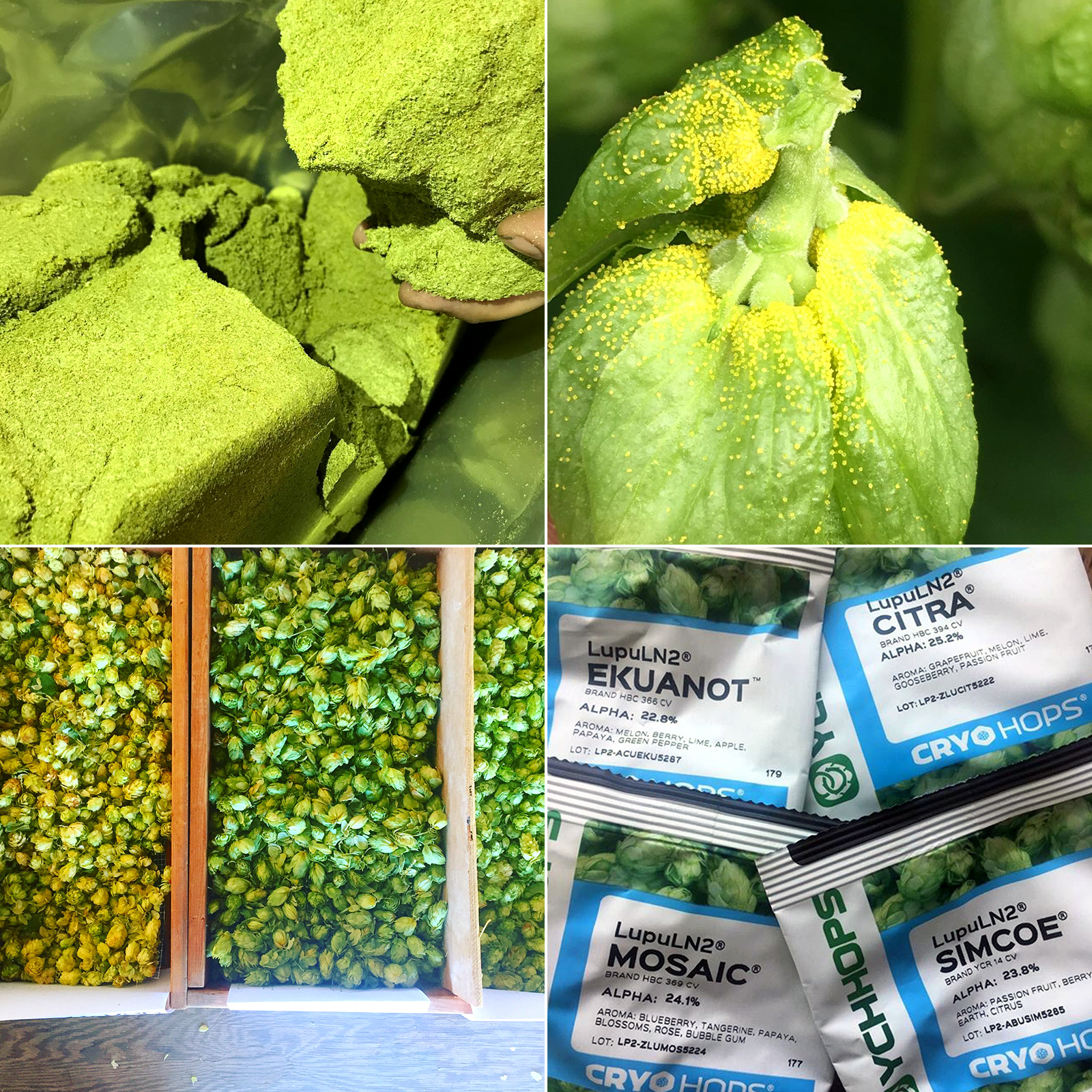Shop
What Is Lupulin and Why Is It in Your Beer?
The green powder that's changing IPAs.
With the explosive popularity of heavily hopped New England or “hazy” IPAs, hop growers have had a busy few years. From Amarillo to Zeus, there are more hop varietals in your favorite beers than you can shake a stick at. Seriously, it’s enough to make you dizzy without drinking any beer at all. But if you’re into hoppy beer, you’ve probably noticed a new sheriff in town: Lupulin.
If you’ve looked at a brewery menu recently, you’ve probably seen the word. It’s on boards from Trillium in Boston to Long Trail in Vermont. But what is lupulin and how does it affect your beer?
What Is Lupulin?
Ever look at a whole cone hop and see a yellow powder clinging to the green leaves? That’s lupulin, a naturally occurring substance in hops that plays a large part in giving the plant its characteristic scents and flavors.
In other words, lupulin contains many of the hop acids and essential oils that make beer so delicious. In fact, when brewers add hops to their beer, it’s largely with the intention of extracting these very acids and oils. The plant matter from the hop cone itself is usually discarded.
What Is Lupulin Powder?
Typically, hops are harvested and then pelletized to preserve their character and make them easier to transport. However, that’s not the only way hops can be packaged and shipped.
Yakima Chief, one of the largest hop producers in the country, knows that brewers are always looking for an edge. In an effort to provide brewers with an efficient alternative to traditional hop pellets, they created a process that separates lupulin from the hop leaf. The highly-concentrated result is known as lupulin powder, also called LupuLN2.
With its technology, Yakima Chief can extract the lupulin from any hop varietal. Thus, lupulin powder isn’t a new hop varietal — a common misconception. Rather, it’s a more efficient way of extracting flavor and aroma from popular, existing varietals like Mosaic, Simcoe, and Citra.
Why Wouldn’t Brewers Just Use Regular Hops?
“LupuLN2 is the concentrated lupulin of whole-leaf hops containing resins and aromatic oils,” Yakima Chief writes on its website. “It is designed to provide intense hop flavor and aroma, enabling brewers to dose large quantities of hops without introducing astringent flavors or vegetative cone material.”
So there you go. Although many brewers prefer whole cone or pellet hops, lupulin reduces the potential for the off-flavors that plant matter sometimes introduces to a beer. And because lupulin powder offers twice the resin content of traditional whole-leaf and hop pellet products, it requires less product to make the same volume of beer.
Lupulin powder can be found in beers made by breweries such as Long Trail in Vermont, Boston’s Trillium Brewing Co., and Other Half Brewing in Brooklyn.


